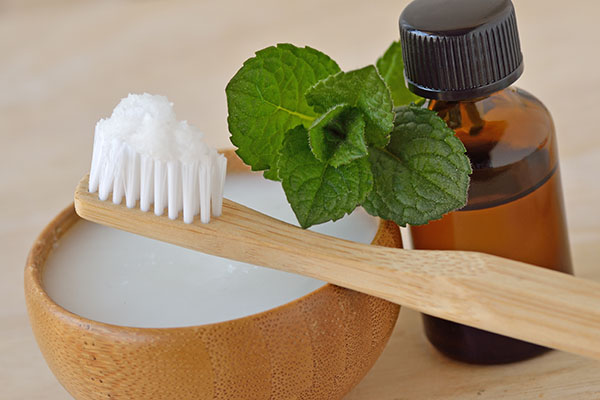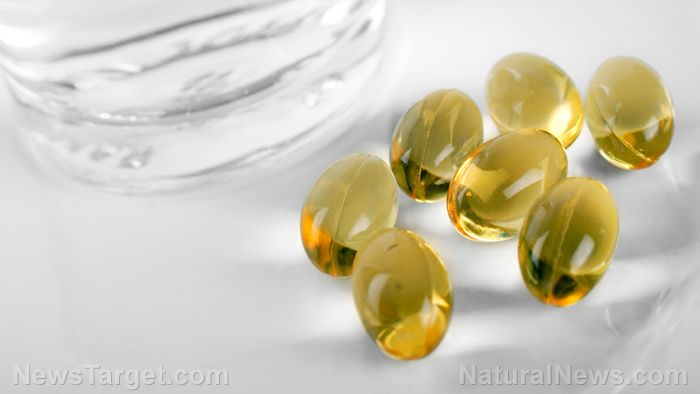Antimicrobial essential oils: 8 Powerful natural alternatives to chemical cleaners
08/16/2025 / By Evangelyn Rodriguez

- Chemical cleaners are harmful, contributing to antibiotic resistance and emitting toxic fumes. Natural alternatives like essential oils offer a safer, toxin-free way of cleaning homes.
- Essential oils like peppermint, eucalyptus and tea tree have proven antimicrobial properties, effectively killing bacteria, viruses and fungi, including antibiotic-resistant strains like MRSA.
- Key essential oils for cleaning include tea tree, peppermint, lemon, eucalyptus, lemongrass, lavender, cinnamon and oregano.
- Mix essential oils with water for sprays, dilute with carrier oils for topical application or diffuse to purify air and combat airborne pathogens.
- Essential oils provide a scientifically backed, eco-friendly alternative to chemical cleaners, offering health benefits alongside antimicrobial protection.
Many homeowners rely on chemical-laden cleaners to combat bacteria, fungi and viruses, unaware that these products contribute to antibiotic-resistant strains and emit toxic fumes that harm children and pets. Fortunately, nature offers safe alternatives like essential oils with potent antibacterial, antiviral and antifungal activities. When harnessed, these properties provide an effective, toxin-free way of purifying homes that doesn’t compromise human health or harm the environment.
Antimicrobial essential oils, which are highly potent but safe and eco-friendly, have been used for various purposes for centuries. Modern research confirms their effectiveness and versatility, whether used as natural remedies or as non-toxic cleaners. What’s more, you can freely use these natural oils at home to replace commercial disinfectants, protecting yourself against pathogens while enjoying additional health benefits.
Essential oils as antimicrobial agents
Essential oils are far more than just pleasant fragrances — they contain bioactive compounds capable of killing microbial pathogens. A study published in the journal Microbios reported that peppermint, eucalyptus, lemongrass and orange essential oils show potent antibacterial activity against 22 different strains.
Similarly, tea tree oil from the Melaleuca alternifolia plant has demonstrated bactericidal effects against methicillin-resistant Staphylococcus aureus (MRSA). Other oils, such as oregano, cinnamon and lavender, have also been shown to combat dangerous bacteria, including Escherichia coli and Pseudomonas aeruginosa.
Here are eight of the most powerful antimicrobial essential oils you can use to clean your home: (h/t to OffTheGridNews.com)
1. Tea Tree Oil: A broad-spectrum germicide
Tea tree oil is renowned for its ability to kill bacteria, viruses and mold. Its antiseptic and antifungal properties make it useful for treating infections, disinfecting surfaces and combating airborne pathogens. When combined with eucalyptus oil, its efficacy increases, especially against E. coli and staph infections.
2. Peppermint Oil: Immune-boosting and air-purifying
Peppermint oil contains compounds like menthol and carvacrol, which fight bacteria such as Salmonella, E. coli and staph. Beyond disinfecting surfaces, peppermint oil acts as a natural air purifier, eliminating germs while leaving behind an invigorating minty scent.
3. Lemon Oil: A versatile disinfectant
With antifungal, antiviral and antibacterial activities, lemon oil is an excellent natural cleaner for surfaces, laundry and even the skin. Mixed with vinegar, it creates a powerful disinfecting spray that eliminates germs just as effectively as synthetic chemical cleaners.
4. Eucalyptus Oil: Potent germicide and wound healer
High in camphor, eucalyptus oil combats bacterial and viral infections. Its antiseptic properties make it ideal for treating wounds, burns and respiratory infections when inhaled or applied topically (diluted). You can use eucalyptus oil to clean floors, glass surfaces and tiles.
5. Lemongrass Oil: Gentle yet powerful antimicrobial
Though milder than lemon oil, lemongrass oil has shown strong antimicrobial activities against agents that cause malaria, typhoid and urinary tract infections. It is also a great antiseptic for wound care and a natural remedy for fungal skin conditions. Combine lemongrass oil with water and vinegar for an effective disinfectant solution.
6. Lavender Oil: Skin-safe and immune-supporting
Beyond its soothing fragrance, lavender oil has significant antibacterial properties, aiding in wound healing, acne treatment and psoriasis relief. It blends well with tea tree oil in natural cleaning solutions, enhancing the latter’s germ-fighting power.
7. Cinnamon Oil: A strong antibacterial for pathogens
Cinnamon oil’s cinnamaldehyde content makes it one of the strongest antibacterial oils on the planet, killing foodborne pathogens and infectious microbes like staph and E. coli. (Related: Sermon 33: CINNAMON as God’s natural antibacterial medicine.)
8. Oregano Oil: A natural defense against toxins
Oregano oil doesn’t just attack bacteria — it prevents them from producing harmful toxins. Taken internally (food-grade only), it can help ward off cold and flu symptoms at the earliest signs. When used to disinfect surfaces, oregano oil can prevent mold and mildew.
Practical ways to use essential oils
- For topical application: Mix eight drops of oil with four teaspoons of carrier oil (like coconut or almond) to make an antimicrobial massage blend.
- For surface cleaning: Combine 25 drops of your chosen essential oil with water in a spray bottle for a natural disinfectant.
- For air purification: Diffuse 8-10 drops of essential oil to eliminate airborne germs (ideal for sick rooms or high-traffic areas).
With rising antibiotic resistance and concerns over chemical-laden cleaners, essential oils provide a scientifically backed, readily available alternative. Their broad-spectrum antimicrobial effects, combined with therapeutic benefits, make essential oils indispensable for natural living. Whether diffused, applied topically or used in cleaning solutions, these oils offer an effective and safer way to protect yourself and your loved ones against harmful pathogens.
Watch the following video to learn how to maintain healthy skin with two skin-nourishing carrier oils.
This video is from the Health Ranger Store channel on Brighteon.com.
More related stories:
3 essential oils with powerful antibacterial and antiviral properties.
Beyond the spice rack: Experts explore the anti-microbial properties of conehead thyme essential oil.
Replace harmful chemical cleaners with these essential oils.
Sources include:
IJCMAS.com [PDF]
Submit a correction >>
Tagged Under:
antibacterial, Antifungal, Antimicrobial, antiviral, cinnamon, cleaners, cleaning solutions, eco-friendly, environment, essential oils, eucalyptus, green living, homesteading, Lavender, Lemon, lemongrass, natural health, natural ingredients, oregano, peppermint, phytonutrients, remedies, Tea Tree
This article may contain statements that reflect the opinion of the author





















